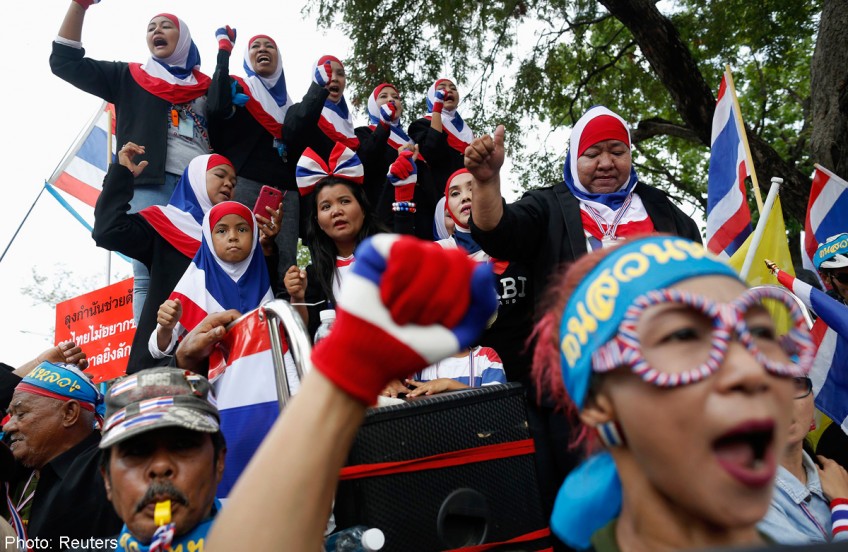Protest-plagued Thailand holds Senate elections

BANGKOK - Thailand holds elections Sunday for the upper house of parliament that could hold the key to the fate of the prime minister, who faces possible impeachment for negligence after months of street protests.
Tens of thousands of demonstrators took to the streets of Bangkok on the eve of the Senate elections demanding the resignation of Prime Minister Yingluck Shinawatra.
While the Senate is officially non-partisan, in reality the two main political camps are vying for control of the chamber in the absence of a functioning lower house following incomplete February polls.
Protesters disrupted those elections, saying reforms are needed first to tackle alleged corruption, but the anti-government movement says it will not block Sunday's polls.
Thailand has seen years of political conflict and rival street protests by opponents and supporters of Yingluck's brother, fugitive former premier Thaksin Shinawatra who was ousted in a coup in 2006.
The billionaire tycoon-turned-politician, who clashed with the royalist establishment, fled overseas in 2008 to avoid jail for a corruption conviction, but he is seen as the de facto leader of his sister's Puea Thai party.
Yingluck has faced five months of mass rallies demanding she step down to make way for an unelected interim government to oversee reforms.
Political violence, often targeting protesters, has left 23 people dead and hundreds wounded in grenade attacks and shootings in recent months, although the bloodshed has abated since the demonstrations were scaled back at the start of March.
Observers say the crisis now appears to be entering a crucial new phase.
Yingluck has been summoned to appear before the National Anti-Corruption Commission (NACC) by Monday to defend herself against negligence charges linked to a rice subsidy scheme.
The anti-graft body says she ignored warnings of corruption and financial losses in the flagship policy.
If indicted she would face an impeachment vote in the upper house that could result in her removal from office and a five-year ban from politics.
Her supporters have warned they will not tolerate the dismissal of another democratically elected government, raising the spectre of more turmoil on the streets.
The pro-Thaksin "Red Shirts" are preparing to stage their own mass rally on April 5 in a show of support for the government.
Their street rallies against the previous government in 2010 resulted in street clashes and a military crackdown that left dozens dead.
The negligence charges have injected extra rivalry into Sunday's elections, which are for roughly half the seats in the 150-member upper house.
The other, unelected senators are appointed by institutions seen as allied to the anti-Thaksin establishment, such as the Constitutional Court and the Election Commission.
An attempt by Yingluck's party to push through a bill that would have made the Senate fully elected was blocked by the Constitutional Court in November, which deemed it unconstitutional.